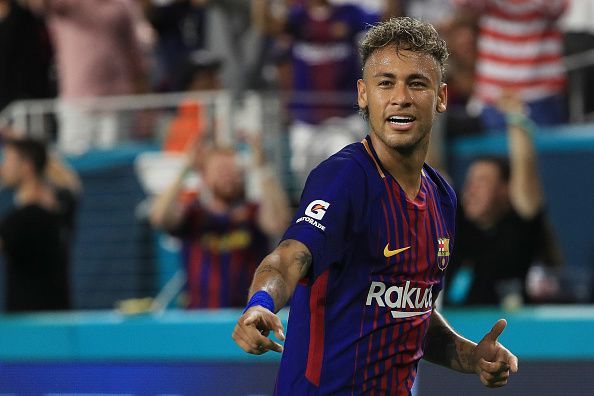That question has become tiring for some, and rightly so. Over the past 30-plus years, there has been several different times when soccer was assumed to be the next big thing in the United States. The media loves to muse over why the World’s Most Popular Sport can’t seem to truly break through here. Major League Soccer perennially lags behind the NFL, NBA, MLB, and NHL in television ratings and, besides a few shining exceptions (Seattle, Portland, Kansas City), can’t find a larger audience beyond its niche supporters. So, what needs to happen for the US to become a soccer country?
On Monday evening at Washington University in St. Louis, four well-known soccer professionals gathered to try to answer that question in a well-timed panel discussion, considering we are almost a month out from the 2014 World Cup now. Sports Illustrated journalist Grant Wahl is probably the most popular soccer writer in the country. If you don’t read, you might recognize him from TV, where he is an analyst for Fox Sports. Clark Hunt is a hugely important figure in the Midwest as the Kansas City Chiefs’ CEO and owner of FC Dallas. Also present was US Soccer Federation General Secretary Dan Flynn, who has almost 14 years experience with US Soccer. Rounding out the panel was the most recognizable face of the bunch, former MLS star and current ESPN personality Taylor Twellman. This group made for a nice variety of age (Twellman, 34, was the youngest and Flynn, 59, the oldest) and profession, with Hunt and Flynn providing the business and ownership perspective and Twellman and Wahl bringing a media mindset.
With author and Wash U professor Michael MacCambridge as moderator, the discussion covered a myriad of topics. He began with pointing out what he called the several “false dawns” for soccer in United States: The popularity of the NASL’s New York Cosmos during Pele’s 3 seasons with them from 1975-77, USA hosting the 1994 World Cup, David Beckham signing with the Los Angeles Galaxy in 2007, and the list goes on. Each one of these was seen at the time as a potential turning point for soccer in the U.S. Each time, the dawning of a new soccer-centric age in this country was held off.
Every member of the panel was largely positive in their assessment of soccer’s future here, which makes sense, considering they all have a stake in said future. Still, there was plenty of serious discussion on past disappointments and the challenges that face the sport domestically. When asked about low points for soccer in the U.S., Wahl responded with the 1998 World Cup in France, which saw the USMNT crash out after three losses and just one goal. Flynn said the folding of MLS franchises in Tampa Bay and Miami was a significant stumble during his time.
Clearly the MLS was going to be a main point of discussion, because without success of a domestic league you can’t cultivate the sport’s national popularity. Sporting KC and Portland, with their soccer-specific stadiums and dedicated fan bases, were singled out as examples for the rest of the league moving forward. Positives such as the return of American stars Clint Dempsey, Michael Bradley, and others to MLS teams was brought up as a sign that the MLS was becoming a destination league. However, Wahl realistically pointed out that to keep making the transition from feeder league to landing spot for truly great international players, the salary cap would need to be raised. This is where television ratings, or what Twellman referred to as “the elephant in the room”, come in. MLS ratings continue to be poor, despite the arrival of U.S. soccer stars this season. Twellman repeatedly chastised American soccer fans that didn’t follow their domestic league, even when met with resistance from an audience question during Q&A. He’s right, though. How is the United States to become a soccer country when we don’t even watch our own league?
A sign of U.S. interest in the sport is the success of English Premier League matches on Saturday mornings, even if the ratings could be higher. However, Twellman – who works in TV, mind you – questioned the accuracy of television ratings in measuring that interest, claiming the popularity of the sport on social media showed greater investment. He also said ESPN’s upcoming MLS television deal was certainly a “step in the right direction”. Through all this, it was still made clear that the product had to keep gaining quality. Everyone always talks about the MLS trying to catch the EPL, La Liga, and Bundesliga, but Twellman made the fantastic point that we should be working to catch Mexico’s Liga MX first. Once their great players are coming to play here, then we can begin to turn our attention overseas.
Other topics included the challenges for MLS in the Southeast, with the announcement of franchises sprouting in Atlanta and Miami. Wahl was clear that if we wanted to be a national league, there had to be teams in the Southeast region, even if it isn’t a hotbed for soccer interest. The entire panel had overwhelming praise for Atlanta Falcons owner Arthur Blank, who will be important in garnering support for the Atlanta franchise. No one claimed it would be an easy transition for the league, but they were all in agreement it was worth it.
Youth soccer was another area discussed in detail. Twellman and Hunt hyped the growth of soccer academies, including Hunt’s own FC Dallas youth program. These are undoubtedly valuable for creating legitimate talent domestically. Women’s soccer was brought up during the Q&A, with Flynn speaking gloomily on the state of the National Women’s Soccer League. He claimed the league has a “revenue issue” and needs to worry about just surviving at the moment. This is amazing, considering the USWNT is a consistent international powerhouse, but it remains a sad truth.
FIFA corruption, concussion awareness, and World Cup 2022 in Qatar were other topics discussed at some length. Wahl confirmed how “slimy” everything about the 2018 and 2022 FIFA World Cup host decisions felt, and Twellman went in depth on the need for more “substantial data” on the effects of repeated head balls. His ThinkTaylor foundation has worked to raise awareness for TBI, or traumatic brain injury.
Ending on the question, “Will the USA win a World Cup in your lifetime?”, every panel member had a bright outlook. Hunt pointed to better American athletes choosing soccer over other sports. Wahl wisely referred to the 2002 World Cup, when the United States arguably outplayed Germany in the quarterfinals, going down 1-0 on a couple sketchy calls. A semi-final date with a beatable South Korea side would have been next and then we could have found ourselves in a World Cup final. Everyone made it clear that luck and circumstance play more than a noteworthy role, but Twellman said that even the most pessimistic among us believe it is possible. Why else would we even be here?






No Comments